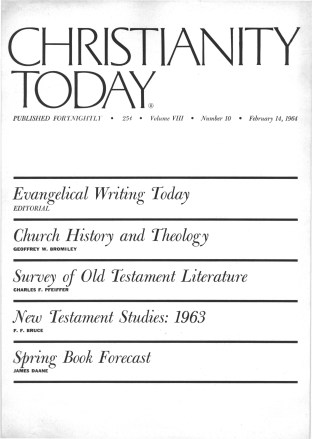Now is my soul troubled; and what shall I say? Father, save me from this hour: but for this cause came I unto this hour (John 12:27).
The introduction reports a poll of twenty prominent people in America, some of them presumably Christians. When asked to list in order of importance 100 events in history, they accorded the Crucifixion fourteenth place. This life situation approach leads up to a message that no one can outline. Secure the book and read the sermon with the heart. What then do we really mean when we speak of the Cross?
I. A Unique Event in History. The Cross has changed the course of history, and may change the course of your life today. The Bible says that the preaching of the Cross becomes to the believer both the wisdom and the power of God. So on Passion Sunday we begin with the Cross, and we stay with the Cross. For the preacher it is inevitable, inescapable; and not only for the preacher. The New Testament writers—in Gospels and Epistles—return to it again and again as the compulsive center of their new-found faith. So it has been in the witness of the Church from the beginning. In every age the Cross looms up again against the Calvary sky, inevitable, inescapable, demanding a decision.
II. The Unique Word of Jesus Christ. As we see from the hymns, creeds, and prayers of the universal Church, authentic Christianity has always known that the Cross speaks the unique word of Christ, the climax of his teaching. The Cross is inseparable from his life. It is the point to which the whole Bible record leads and from which the Christian Church starts out.
The preaching of the Cross has overtones [so has this sermon] that can be heard in those depths that no simple ethics or logic can reach. [Here follows a poignant example from the war work of Chaplain Read.] For us the Cross was unavoidable. Its mark is set deep in human history, and our common life bears the scar of this divine sacrifice, this judgment, and this tremendous sympathy. But the question arises: Was the Cross inevitable for Him? Could Jesus have escaped his cross?
III. The Inevitability of God’s Love. [To this final answer the discussion leads up climactically. Over against certain impossible replies, the sermon quotes the text.] “For this cause.” With these words His destiny is clear. He came to die. The Cross that was now almost within sight would be freely chosen. Why? Because there was no other way in which he could reach to the depth of the human agony he came to endure, so as to “bear our griefs and carry our sorrows.” Because there was no other way he could draw upon himself the hopeless weight of our sins and absorb the evil that blocks us from the holiness of God.
“The Lord hath laid on him the iniquity of us all.” The only way the God of peace and joy can reach his suffering family is in this amazing fashion to share that suffering. The only way the God of perfect purity and goodness can reach his disobedient people is himself to offer the sacrifice for sin. What we see in the Cross is not the hideous outworking of blind fatality, not a tragic accident of history. We see the end-result of God’s redeeming love going out to seek us where we are. “For this cause came I into the world.”
This is why, for those who have ears to hear, the message of the Cross is the greatest message in the world, and why whenever we hear it we face a life-or-death decision. Faced with this demonstration of God’s love, do I yield myself to Him who loved me and gave himself for me? “If any man will come after me,” says Jesus, “let him deny himself, and take up his cross daily, and follow me. For whosoever will save his life shall lose it: but whosoever will lose his life for my sake, the same shall save it.”—From I Am Persuaded (Scribner’s, 1962).









